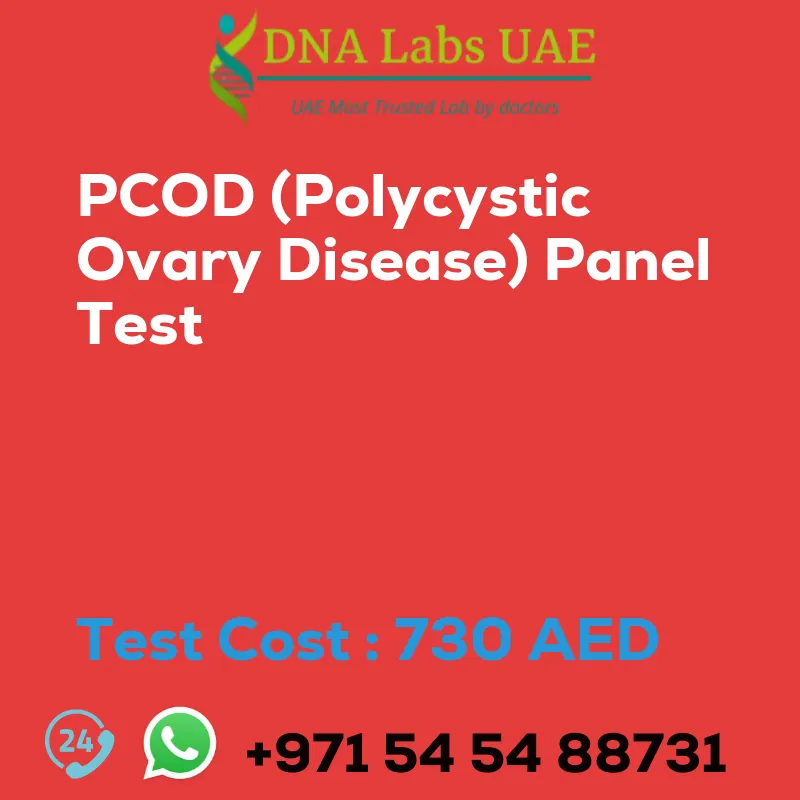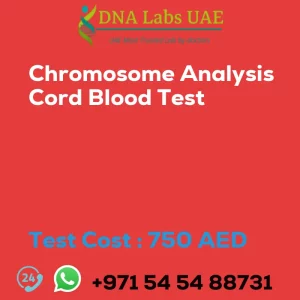PCOD POLYCYSTIC OVARIAN DISEASE PANEL Test
Test Name: PCOD POLYCYSTIC OVARIAN DISEASE PANEL Test
Components:
- FSH
- LH
- Testosterone, Total
- Prolactin
- Insulin, fasting
- Glucose, fasting
- TSH Ultrasensitive
Price: 730.0 AED
Sample Condition: 4 mL (2 mL min.) serum from 1 SST AND 2 mL (1 mL min.) plasma from 1 GreyTop(SodiumFluoride)tube. Collect specimen 4 hours after the patient has awakened. Ship refrigerated or frozen. Overnight fasting is mandatory.
Report Delivery: Daily
Method: Hexokinase, CLIA, CMIA
Test type: PCOD
Doctor: Gynecologist
Test Department:
Pre Test Information: Overnight fasting is mandatory. Collect specimen 4 hours after the patient has awakened.
Test Details
The PCOD (Polycystic Ovarian Disease) Panel Test is a diagnostic tool used to assess hormonal imbalances and other related factors associated with PCOD. This panel typically includes various tests that help in evaluating the condition and determining the appropriate treatment plan.
Some of the common tests included in the PCOD panel may include:
- Hormone levels: This includes testing the levels of hormones such as estrogen, progesterone, luteinizing hormone (LH), follicle-stimulating hormone (FSH), and testosterone. Hormonal imbalances are a common characteristic of PCOD.
- Glucose levels: This test measures fasting blood glucose levels to assess insulin resistance, which is often associated with PCOD.
- Lipid profile: This test measures cholesterol and triglyceride levels to evaluate the risk of cardiovascular diseases, which can be increased in women with PCOD.
- Thyroid function tests: This includes testing thyroid-stimulating hormone (TSH), free thyroxine (T4), and free triiodothyronine (T3) levels to assess thyroid function, as thyroid disorders are commonly associated with PCOD.
- Ultrasound scan: An ultrasound scan of the ovaries may be performed to evaluate the presence of cysts or other abnormalities.
- Anti-Mllerian hormone (AMH) levels: This test measures the level of AMH, which is often elevated in women with PCOD and can indicate the presence of multiple small cysts on the ovaries.
These tests, when performed together, provide a comprehensive assessment of the hormonal and metabolic status of individuals with suspected or diagnosed PCOD. The results help healthcare providers in determining the most appropriate treatment plan, which may include lifestyle modifications, medications, or other interventions aimed at managing the symptoms and complications of PCOD.
It is important to note that the specific tests included in the PCOD panel may vary depending on the healthcare provider and the individual’s specific needs.
| Test Name | PCOD POLYCYSTIC OVARIAN DISEASE PANEL Test |
|---|---|
| Components | *FSH*LH*Testosterone, Total *Prolactin *Insulin,fasting*Glucose,fasting * TSH Ultrasensitive |
| Price | 730.0 AED |
| Sample Condition | 4 mL (2 mL min.) serum from 1 SST AND 2 mL (1 mL min.) plasma from 1 GreyTop(SodiumFluoride)tube. Collectspecimen4hoursafterthe patient has awakened. Ship refrigeratedorfrozen.Overnightfasting ismandatory. |
| Report Delivery | Daily |
| Method | Hexokinase, CLIA, CMIA |
| Test type | PCOD |
| Doctor | Gynecologist |
| Test Department: | |
| Pre Test Information | Overnight fasting is mandatory. Collect specimen 4 hours after the patient has awakened. |
| Test Details |
The PCOD (Polycystic Ovarian Disease) Panel Test is a diagnostic tool used to assess hormonal imbalances and other related factors associated with PCOD. This panel typically includes various tests that help in evaluating the condition and determining the appropriate treatment plan. Some of the common tests included in the PCOD panel may include: 1. Hormone levels: This includes testing the levels of hormones such as estrogen, progesterone, luteinizing hormone (LH), follicle-stimulating hormone (FSH), and testosterone. Hormonal imbalances are a common characteristic of PCOD. 2. Glucose levels: This test measures fasting blood glucose levels to assess insulin resistance, which is often associated with PCOD. 3. Lipid profile: This test measures cholesterol and triglyceride levels to evaluate the risk of cardiovascular diseases, which can be increased in women with PCOD. 4. Thyroid function tests: This includes testing thyroid-stimulating hormone (TSH), free thyroxine (T4), and free triiodothyronine (T3) levels to assess thyroid function, as thyroid disorders are commonly associated with PCOD. 5. Ultrasound scan: An ultrasound scan of the ovaries may be performed to evaluate the presence of cysts or other abnormalities. 6. Anti-Mllerian hormone (AMH) levels: This test measures the level of AMH, which is often elevated in women with PCOD and can indicate the presence of multiple small cysts on the ovaries. These tests, when performed together, provide a comprehensive assessment of the hormonal and metabolic status of individuals with suspected or diagnosed PCOD. The results help healthcare providers in determining the most appropriate treatment plan, which may include lifestyle modifications, medications, or other interventions aimed at managing the symptoms and complications of PCOD. It is important to note that the specific tests included in the PCOD panel may vary depending on the healthcare provider and the individual’s specific needs. |








